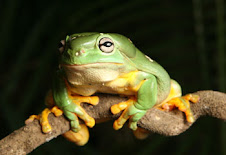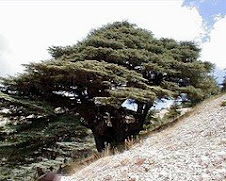article by Joanna Smith, TheStar.com
The Toronto Zoo chose "leap day" to raise awareness about an unprecedented crisis threatening amphibians around the world.
Cute gimmicks aside, zoo workers and local politicians gathered in front of frogs, toads and reporters yesterday to speak about the global amphibian problem and what they are trying to do about it.
"This is an extinction crisis that is unprecedented in the history of the world," said Bill Peters, national director of the Canadian Association of Zoos and Aquariums.
Frogs and other amphibians have managed just fine for the past 360 million years, but now up to half of the 6,000 known amphibian species face extinction within the next few decades. Pollution, loss of habitat and overharvesting continue to be problems. But the big killer around the world is actually an infection called chytrid fungus.
"That fungus attacks the skin of the frogs. It can no longer take in oxygen or water and they die," said Bob Johnson, curator of reptiles and amphibians at the zoo.
About 120 species have already gone extinct and many others are threatened around the world.
The killer infection originated in South Africa and spread quickly throughout Asia, Central and South America, and has arrived in the United States and Canada.
Johnson said the disease is especially difficult to deal with because even natural conservation parks and other wildlife havens provide no protection against it.
The zoo declared 2008 the Year of the Frog to celebrate the opening of its amphibian breeding centre to the public. The zoo launched a breeding program for Puerto Rican crested toads in 1986 and has since released 52,000 of the animals, once thought to be extinct, back into the wild.
The zoo will also open a frog rescue centre this summer to increase the number of animals they will be able to quarantine from the fungal disease. "There is a worldwide effort of scientists trying to fix the problems in the wild and we're holding the animals here in trust so that they can go back hopefully in the near future," Johnson said.
Natural Resources Minister Donna Cansfield said the province is ironing out legislation to protect 128 plant and animal species.
More suggested browsing:
Solar Intelligence Blog - For Alternative Energy News, World Peace Movements
A Green Realtor Blog - Eco-friendly Realty, Bio-realtors, Green building links
Why Are Chronically Low-performing Charter Schools Renewed?
-
The easy answer is greed, profit, and kickbacks. But how are such actions
undertaken so frequently? One of the most fundamental rationales put
forward de...
10 hours ago



No comments:
Post a Comment